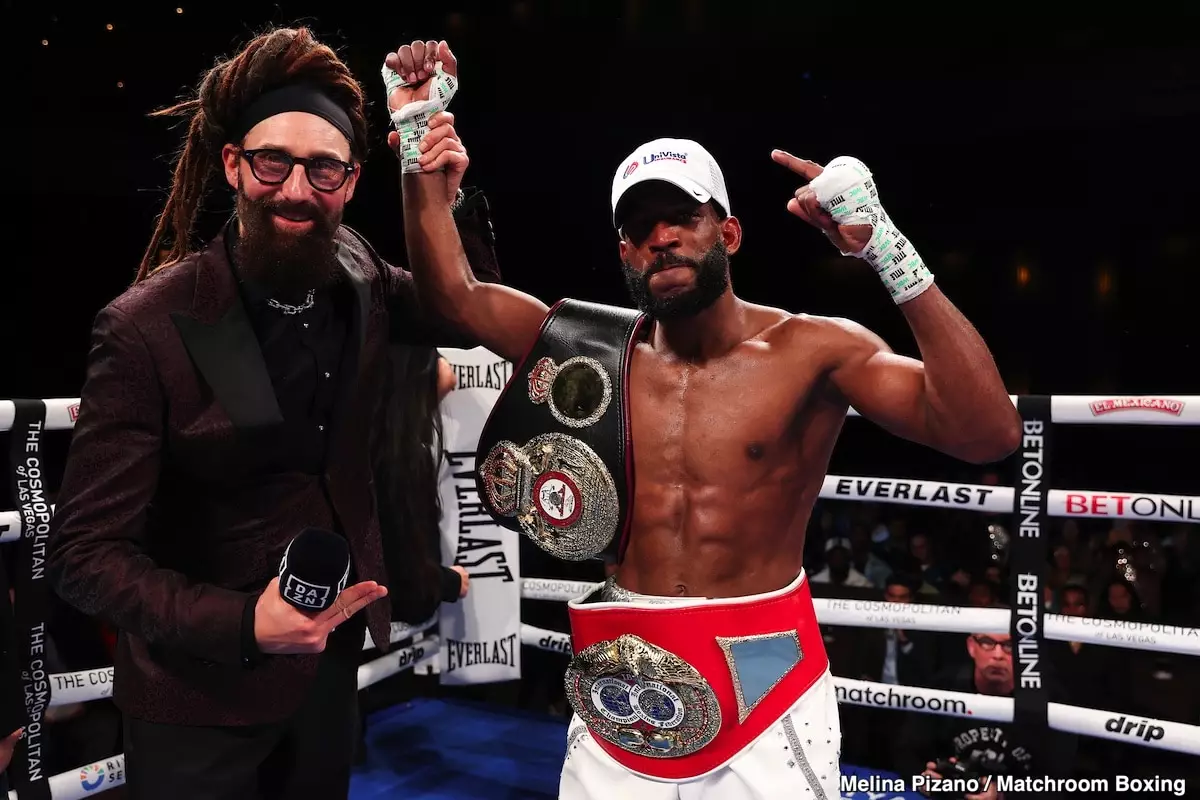In the world of boxing, where the stakes are often life-altering and careers are built on public perception, the dance between ambition and fear is a constant undertone. Keyshawn Davis’s recent remarks about his amateur rival Andy Cruz reveal a fascinating dichotomy that exists within the sport. While Davis is climbing the ranks as a professional fighter, his unwillingness to face Cruz, despite their history, raises questions about his confidence and strategic decision-making in a sport that rewards both skill and bravado.
Excuses or Strategy? The Davis Perspective
When prompted about a potential bout with Andy Cruz, Keyshawn Davis delivered a slew of excuses that suggest a calculated resistance to confrontation. The four past losses to Cruz in the amateurs loom large, and Davis seems acutely aware that a fifth loss could significantly tarnish his burgeoning career. Instead of embracing the challenge as an opportunity for redemption, Davis dismisses Cruz as not being worthy of a fight, citing factors such as Cruz’s amateur background and lack of a substantial fan base. This characterization is significant; it suggests that Davis is more focused on managing his career trajectory than engaging in what could be a defining match.
Davis (12-0, 8 KOs) claims to be pursuing bigger names in the sport, such as Gervonta Davis, a fighter who undeniably holds significant clout in the boxing world. However, this assertion raises doubts about his genuine intent to prove himself against his seasoned rivals. The question remains: is Davis prioritizing high-profile matches at the expense of confronting real threats like Cruz? This cautious approach could ultimately reflect a fear of failure rather than a strategic career move.
Despite Davis’s denouncements, Andy Cruz is no ordinary opponent. As a 2020 Olympic gold medalist, Cruz’s pedigree in amateur boxing speaks volumes about his capabilities. In his fledgling pro career, where he stands at 5-0, Cruz has demonstrated skills that could easily translate to the professional ring. While Davis critically observes Cruz’s performance, he seems to overlook the essence of growth that often characterizes a fighter’s transition from the amateur circuit to professional bouts. Cruz’s learning curve seems well within expectations, and his early outings could be seen as foundational rather than indicative of ultimate failure.
Moreover, Top Rank’s investment in Davis amplifies the perception that he is being protected—anointing him as the next big star in boxing while other talents, including Cruz, struggle for comparable visibility under Matchroom. This disparity in promotion raises further questions about how much of Davis’s bravado is influenced by business interests and how much stems from a solid belief in his abilities. His focus on avoiding fights that could jeopardize his career suggests an inherent vulnerability, one that might undercut his future aspirations in the sport.
Public Perception and the Boxing Spectacle
The landscape of boxing is significantly influenced by narrative and public perception. Davis’s disparaging remarks about Cruz, labeling him as “too flawed” and an unnecessary risk, indicate a tactical choice to shape a story around his rise rather than engage in a gritty rivalry that the fans might yearn for. His desire to focus on “stars” and avoid fighters that are perceived as “backwards moves” reveals a troubling tendency within the sport—where managed perceptions often overshadow raw competition.
Cruz’s continued public dialogue referencing Davis may also serve to keep the narrative alive, but it is crucial to recognize that one-sided discussions rarely lead to mutual growth. Real competition fosters improvement, challenges perceptions, and ignites the passion that fans and fighters alike crave. Davis’s reluctance to engage with Cruz undermines not just the integrity of his own career but the authentic fabric of boxing itself.
Ultimately, Keyshawn Davis stands at a crossroads where ambition and fear intersect. As he prepares for a heavyweight clash with WBO lightweight champion Denys Berinchyk, the choice to actively avoid a bout with Cruz becomes increasingly pronounced. The decision to chase bigger names, while sidestepping other contenders, may not have the long-term payoff he envisions.
In boxing, risk is often the gateway to greatness. Embracing challenges, engaging with rivals, and seizing opportunities to confront past demons are essential steps in creating a lasting legacy. For Davis, the journey ahead must include introspection and a willingness to step beyond the shadows of fear and into the light of genuine competition. If he continues down the path of avoidance, he may find himself known not just for his talent but for being a reluctant fighter whose true potential never truly materialized.

